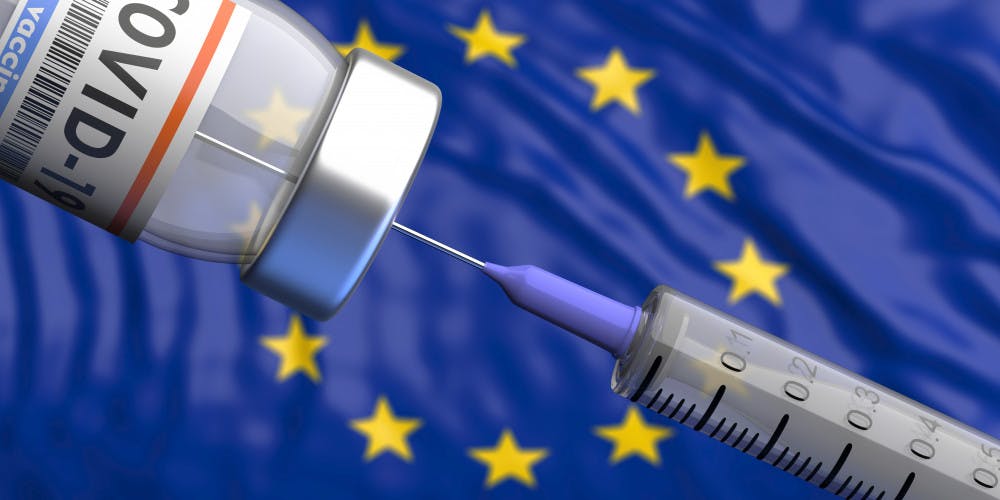By Hailey Ruane
Staff Writer
The scramble to obtain the Covid-19 vaccine has been a worldwide struggle as cases continue to rise. Beginning this February, the European Union’s (EU) nations have fallen behind other countries' rates of vaccinations. Tensions have risen throughout Europe, but especially between Brexit and the EU. Brexit has been widely controversial, but their method of handling vaccines has put the EU’s organization to shame.

Back in May of 2020, the British government ordered over 100 million vaccines from AstraZeneca. Around the same time, the EU decided that all 27 members should purchase the vaccines collectively. By the time the EU finalized their plan, it was August of 2020, months after the British government had completed their plan. Fast forward to February 2021, and AstraZeneca is only able to produce a certain amount of vaccines. Since the producer works on a first come, first serve basis, the EU will have to wait until the British order is completed.
According to Foreign Policy, “the U.K. has vaccinated more than 11 percent of its population, compared with around 2 percent in Germany and less than that in France.”
A way that the EU tried to make up for their shortage was by blocking exports of the AstraZeneca vaccine that Britain had already ordered and paid for, which even outraged pro-EU Britains.
This move by the EU is considered uncalled for by many, especially due to the fact that the EU had multiple chances to secure a vaccine deal. In November, Brussels ordered vaccines from Pfizer-BioNTech. Shortly after, the U.S announced that there would be huge delay in the distribution of vaccines to the EU. Six countries within the EU decided to write out of the commission because of the delay. Britain also moved faster than the EU with securing a deal.
As reported by France 24, “Again, Britain acted more quickly, buying its Pfizer-BioNTech doses in July.” Pfizer offered the EU 500 million doses the same month – but Brussels turned the proposal down, deeming it too expensive, according to an internal EU document seen by Reuters.
The EU has been criticised on numerous occasions for its inability to prioritize getting vaccines over the cost of them. This lack of organization when it comes to vaccinations is not unfamiliar with nations around Europe.
France 24 stated that, “The EU Commission is very good at negotiating things like trade deals, but traditionally it hasn’t had competence in such matters as vaccines and contract negotiations, which were left to member states.”
Brexit has been debated in the past, but the recent events within the vaccine scandal has caused government officials to reevaluate their previous opinions on the British government. Foreign Policy reported that, “It’s helped us to convince a lot of people, even many who thought Brexit was a bad idea, that [Britain] is much better out of this awful organization.”
On Feb. 17, the EU attempted to redeem themselves by securing a vaccine deal. The variants of Covid-19 are continuing to rise, and there is a high chance of the variants becoming the most dominant strain. Thankfully, they managed to land one with Moderna. According to AP News, this deal cost them approximately a quarter of a billion Euros (around $300 million), and it will give the EU 300 million doses between now and 2022.
As reported by AP News, the President of the EU Ursula von der Leyen stated “Our priority is to ensure that all Europeans have access to safe and effective Covid-19 vaccines as soon as possible.“ At the same time, new variants of the virus are emerging fast and we must adapt our response even faster.”







